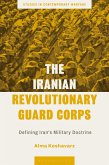This timely study examines the forces at play in one of the world's most explosive nations, helping readers understand why Syria's popular uprising has been the most violent and hard-fought in the Middle East. In this insightful work, a noted expert goes behind the headlines to examine the complexities of Syrian politics and their impact on the modern world. Beginning with an overview of political and economic change after 1963 when the Ba'th Party came to power, the book focuses on developments in Syria since Bashar al-Assad assumed the presidency in 2000. It probes the evolution of the Islamist opposition and the course of the popular uprising that broke out in 2011 and explores Syria's multilayered relations with Israel, Turkey, Iran, Russia, and the United States. Readers will learn why rebellion in Syria has taken a much different path than movements that overturned autocratic regimes in Tunisia, Egypt, and Yemen. They will also come away with a more nuanced understanding of the pivotal role Syria plays in both the Arab-Israeli conflict and inter-Arab relations, as well as the confluence of domestic challenges and foreign threats that make Syria the most vulnerable state in the contemporary Middle East.
Bitte wählen Sie Ihr Anliegen aus.
Rechnungen
Retourenschein anfordern
Bestellstatus
Storno









